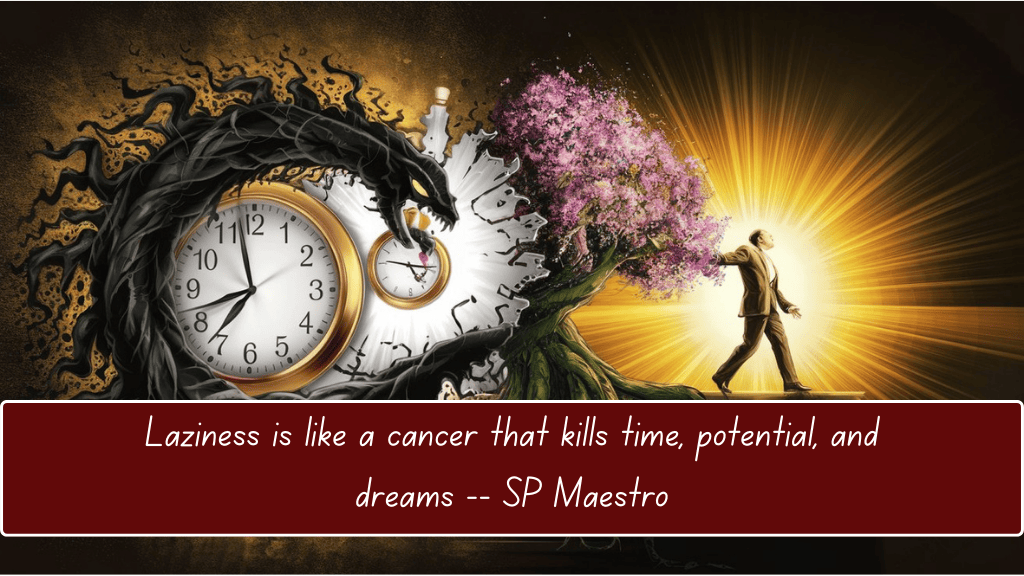Introduction
How much do you really know about your brain? That fascinating 3-pound organ controlling everything you do might be the most misunderstood part of your body. For years, popular culture, movies, and even some educators have perpetuated myths about how our brains function—misconceptions that might actually be holding you back from reaching your full cognitive potential.
Today, we’re going to set the record straight by exploring the top 10 brain myths that science has debunked, and provide you with practical activities to optimize your brain function. Understanding the truth about your brain is the first step toward unlocking capabilities you might not have realized you possess.
Brain Myths #1: We Only Use 10% of Our Brain

Perhaps the most persistent brain myth of all time is that humans only use about 10% of their brain capacity. This myth has been the premise of movies like “Lucy” and countless self-help books promising to help you tap into that dormant 90%.
The Truth: PET scans and fMRI studies clearly show that we actually use most of our brain most of the time, even during sleep. Different activities engage different parts of the brain, but there is no vast untapped reservoir of brain power just waiting to be accessed. Every region of your brain has a purpose, and while not all neurons fire simultaneously (which would cause a seizure), we use our entire brain throughout the day.

Practical Activity
Brain Mapping Exercise – Keep a journal for a day and note down your various activities (reading, calculating, exercising, socializing, etc.). Research which brain regions are primarily involved in each activity to develop a personal "brain usage map." This exercise helps you appreciate how your whole brain works together throughout daily life.
Brain Myths #2: Your Brain Power Inevitably Declines with Age

Many of us fear getting older because we believe it inevitably means cognitive decline and memory loss.
The Truth: While certain aspects of cognition may slow with age, others actually improve! Older adults often demonstrate better language skills, emotional regulation, and wisdom-based decision-making than their younger counterparts. The aging brain compensates and adapts by recruiting different neural networks. Furthermore, research shows that maintaining an active lifestyle—both physically and mentally—can significantly reduce age-related cognitive changes.

Practical Activity
Emotional Intelligence Game – Practice identifying subtle emotions in photographs of faces across different age groups. Research shows that emotional intelligence often improves with age. Compare your results with friends or family members of different age groups to see this cognitive strength in action.
Brain Myths #3: Brain Damage Is Always Permanent
The belief that brain damage is irreversible has caused unnecessary despair for those affected by strokes, traumatic injuries, or neurological conditions.
The Truth: The brain possesses remarkable adaptability through neuroplasticity—its ability to reorganize itself by forming new neural connections. While not all damage can be completely reversed, the brain can often compensate by developing alternative pathways. This is why rehabilitation therapies can help patients regain functions previously thought lost.

Practical Activity
Neuroplasticity Trial – If you're right-handed, try using your left hand (or vice versa) for routine tasks like brushing your teeth or writing. This challenges your brain to create new neural pathways. Start with 5 minutes daily and gradually increase the complexity of tasks. Keep a journal of your progress to witness neuroplasticity in action.
Brain Myths #4: Your Brain Is Fixed After Childhood
Many believe that our brain development stabilizes after childhood, with little room for significant change afterward.
The Truth: Your brain remains remarkably dynamic throughout life. New neurons can form in certain brain regions (neurogenesis), and new connections (synapses) develop continuously in response to learning and experiences. This lifelong plasticity means your brain is constantly adapting to new challenges and environments.

Practical Activity
Variable Puzzle Challenge – Try the same type of puzzle (sudoku, crossword, etc.) in progressively different formats or difficulty levels. Document how your approach changes and adapts. This demonstrates how your brain creates new pathways when confronted with variations of familiar problems.
Brain Myths #5: Left-Brain People Are Analytical, Right-Brain People Are Creative
The popular notion that people are either “left-brained” (logical, analytical) or “right-brained” (creative, intuitive) has been used to explain personality differences and learning styles.
The Truth: While certain functions do show some lateralization (language processing often occurs more in the left hemisphere, for example), modern brain imaging shows that both hemispheres work together for most tasks. Complex activities like music appreciation, mathematical problem-solving, or artistic expression engage networks across both sides of the brain simultaneously.

Practical Activity
Integrated Hemisphere Challenge – Create a "math story" by developing a narrative that incorporates numerical puzzles. For example, write a short mystery where solving math clues reveals the culprit. This activity engages both creative storytelling and logical reasoning, demonstrating how both hemispheres work together.
Brain Myths #6: Memory Works Like a Video Recording
Many believe our memories are stored like video recordings that can be played back exactly as events occurred.
The Truth: Human memory is reconstructive, not reproductive. Each time we recall a memory, we essentially rebuild it, making it vulnerable to modification based on new information, suggestions, or current emotional states. This is why eyewitness testimony can be unreliable and why people can have sincere but false memories.

Practical Activity
Integrated Hemisphere Challenge – Create a "math story" by developing a narrative that incorporates numerical puzzles. For example, write a short mystery where solving math clues reveals the culprit. This activity engages both creative storytelling and logical reasoning, demonstrating how both hemispheres work together.
Brain Myths #7: Classical Music Makes Babies Smarter
The “Mozart Effect” became a widespread phenomenon in the 1990s, with many parents playing classical music to boost their children’s intelligence.
The Truth: Scientific research has found no evidence that merely listening to classical music enhances intelligence or cognitive development in infants. While music education (learning to play instruments) does show benefits for brain development, passive listening doesn’t produce the dramatic IQ benefits once claimed.

Practical Activity
Music and Concentration Test – Try performing a focus-intensive task (like proofreading a document) in three conditions: while listening to classical music, while listening to your favorite music, and in silence. Compare your performance and concentration levels under each condition to discover your personal optimal work environment.
Brain Myths #8: Brain Games Significantly Improve Memory and Reasoning
Numerous apps and programs claim to boost overall cognitive function through specialized brain games and exercises.
The Truth: Research shows that while people often get better at specific brain games with practice, these improvements rarely transfer to general cognitive abilities or real-world tasks. Most brain training programs make you better at the games themselves but don’t necessarily enhance overall memory, attention, or problem-solving capabilities.

Practical Activity
Transfer Skills Assessment – After playing a brain training game for a week, design a real-world test of the same cognitive skill the game claims to improve. For example, if the game supposedly improves memory, test your ability to remember a shopping list or people's names at an event. This helps evaluate whether gaming skills transfer to practical applications.
Brain Myths #9: IQ Remains Fixed Throughout Life
Many believe that intelligence quotient (IQ) is determined genetically and remains constant throughout life.
The Truth: IQ can change significantly over time based on education, environment, and experiences. Studies of adopted children show that environmental factors can substantially impact IQ scores. Additionally, different types of intelligence (emotional, creative, practical) aren’t fully captured by traditional IQ tests but are equally important for life success.

Practical Activity
Intelligence Self-Analysis – Reflect on and document skills you've developed over your lifetime that weren't present in your younger years. Include both academic and non-academic abilities (emotional regulation, specialized knowledge, interpersonal skills). This exercise highlights how intelligence evolves and expands over time.
Brain Myths #10: Stress Improves Brain Performance
The common belief that pressure and stress push us to perform better has led many people to create unnecessarily stressful conditions for learning and work.
The Truth: While mild, short-term stress can temporarily boost alertness, chronic or intense stress actually impairs cognitive function. Stress hormones like cortisol can damage the hippocampus (crucial for memory) and impair decision-making abilities. The best cognitive performance typically occurs in challenging but supportive environments with manageable stress levels.

Practical Activity
Stress Impact Assessment – Complete the same type of task (like solving puzzles or writing) under timed, high-pressure conditions and then in a relaxed setting without time constraints. Compare both the quality of your work and your subjective experience. Most people discover they perform better when not under excessive stress.
Practical Tips for Optimal Brain Health
Now that we’ve debunked these common myths, here are science-backed strategies to genuinely enhance your brain function:
- Physical Exercise: Regular aerobic activity increases blood flow to the brain and promotes neurogenesis.
- Quality Sleep: Consistent, sufficient sleep is essential for memory consolidation and cognitive function.
- Balanced Nutrition: A Mediterranean-style diet rich in omega-3 fatty acids, antioxidants, and whole foods supports brain health.
- Continuous Learning: Challenging your brain with new skills and knowledge builds cognitive reserve.
- Social Connection: Meaningful relationships and social interaction are strongly associated with cognitive health.
- Stress Management: Practices like mindfulness meditation help counteract the harmful effects of chronic stress.
- Mindful Technology Use: Limit digital distractions that fragment attention and reduce deep thinking.
Conclusion
Understanding the truth about how your brain works is empowering. By letting go of these myths, you can adopt more effective strategies for enhancing your cognitive abilities and maintaining brain health throughout life. Your brain is far more capable and adaptable than these myths suggest—it’s constantly changing, growing, and responding to how you use it.
What other brain myths have you encountered? How has learning the truth changed your approach to learning or cognitive performance? Share your experiences in the comments below!
Other interesting content you may like
-
Neuroplasticity: 5 Steps to Rewire Your Brain for Success
-
Which Utensil is Healthiest for Eating? Complete Guide to 9 Utensils and Their Health Effects
-
18 Laws of Human Nature: Ultimate Guide to Decode People Like a Pro
-
His Holiness Beloved SP Maestro MahaaGURU Ji Invited as Special Guest for Hanuman Chalisa Meditation in London
-
1600+ Days of Continuous Yagnas and Counting: An Ongoing Mission for Global Harmony
-
Journey of His Holiness Beloved SP Maestro MahaaGURU Ji
-
Free Medical Camp Serves 150 Residents in Ramalakshmana Pally
-
What Are Mudras? 7 Sacred Hand Positions That Powerfully Transform Your Well-Being
-
7 Rules for Charisma: Proven Secrets to Become Magnetic in Any Room
-
Healing the Inner Child: 4 Powerful Trauma Types & Affirmations to Transform Your Life
Conclusion
Explore Inspiring Spiritual Websites
Aumaujaya.org
A spiritual website filled with inspiring content to help you deepen your understanding of mindfulness and living in the present. Explore their teachings to enrich your journey toward inner peace.
Visit WebsiteAuysa.org
A platform dedicated to motivating and uplifting the spirit of youth. If you’re looking for ways to inspire younger generations to embrace the present, this is a fantastic resource.
Visit WebsiteShreeprabhu.org
A spiritual website with inspiring content centered around the idea of “Universal Oneness.” Their teachings align beautifully with the art of being present and finding happiness in every moment.
Visit Website


